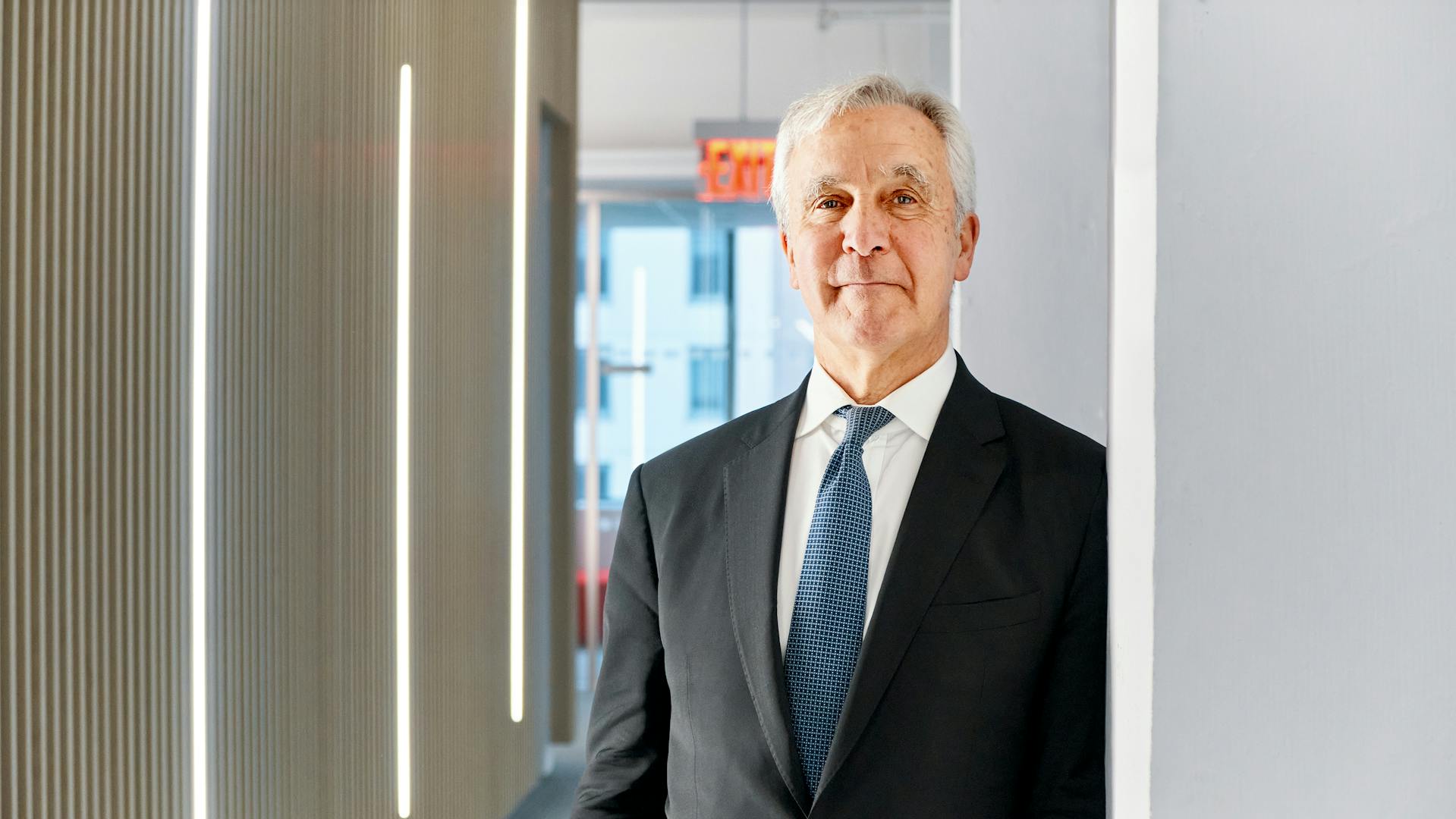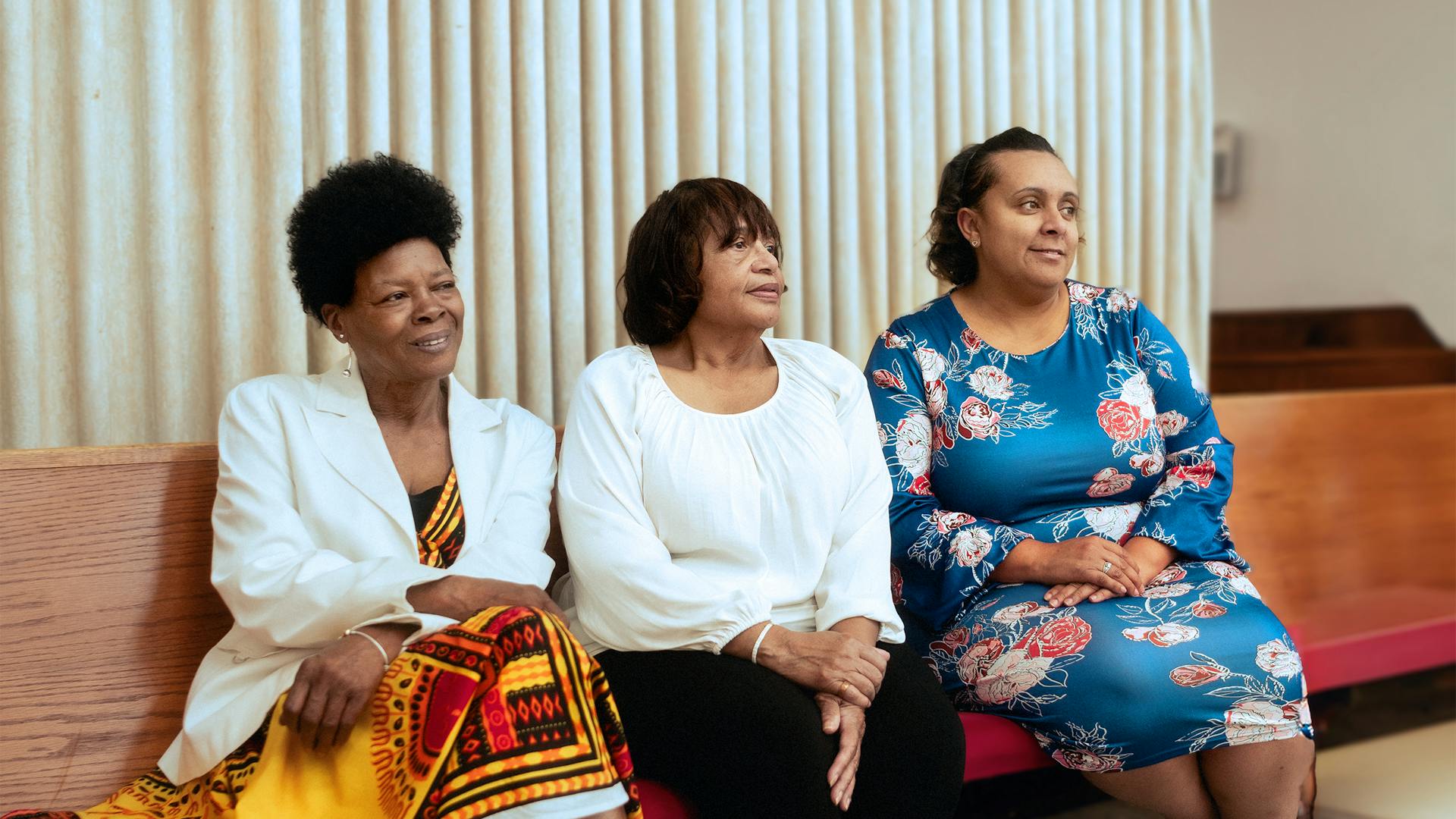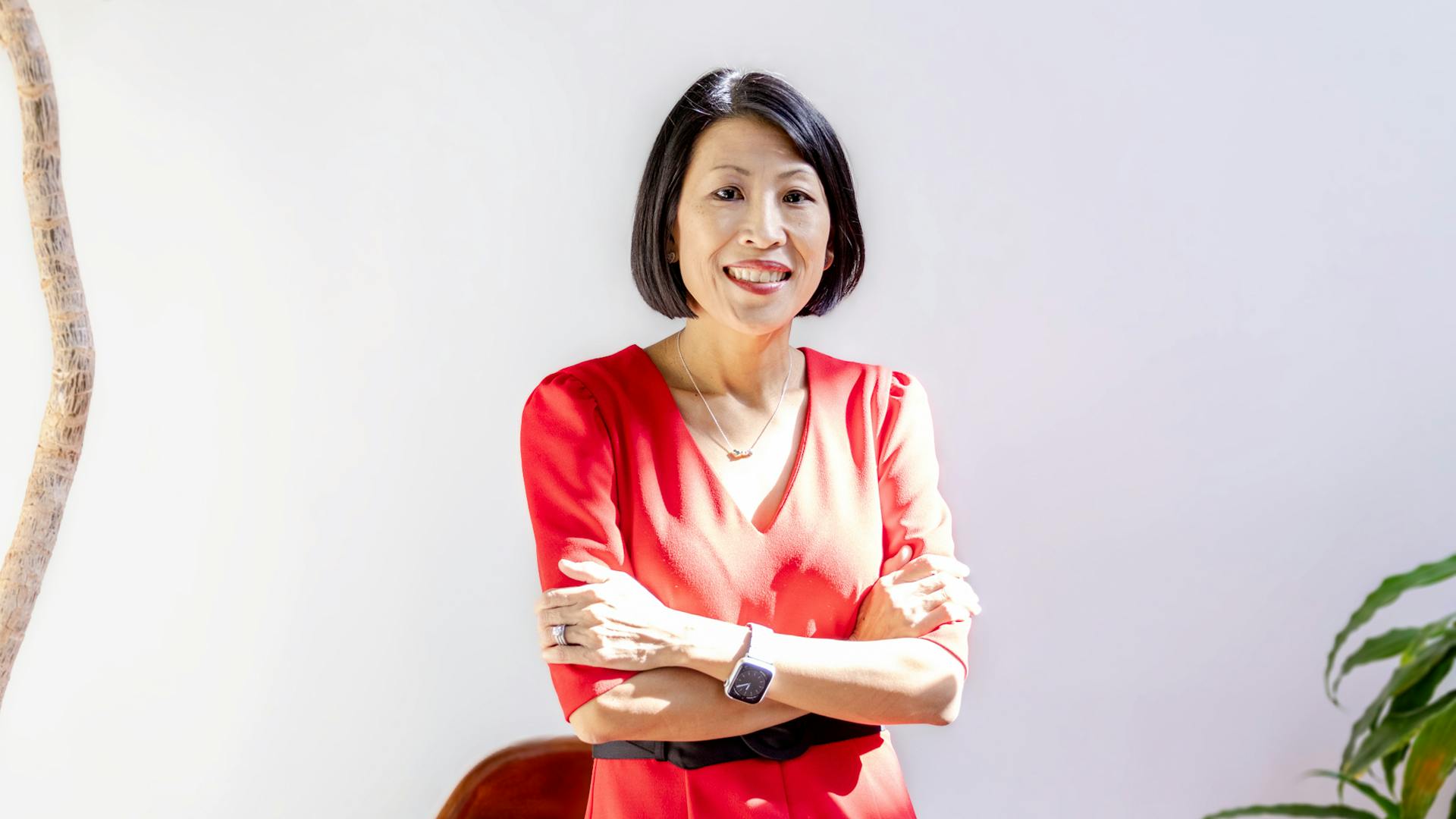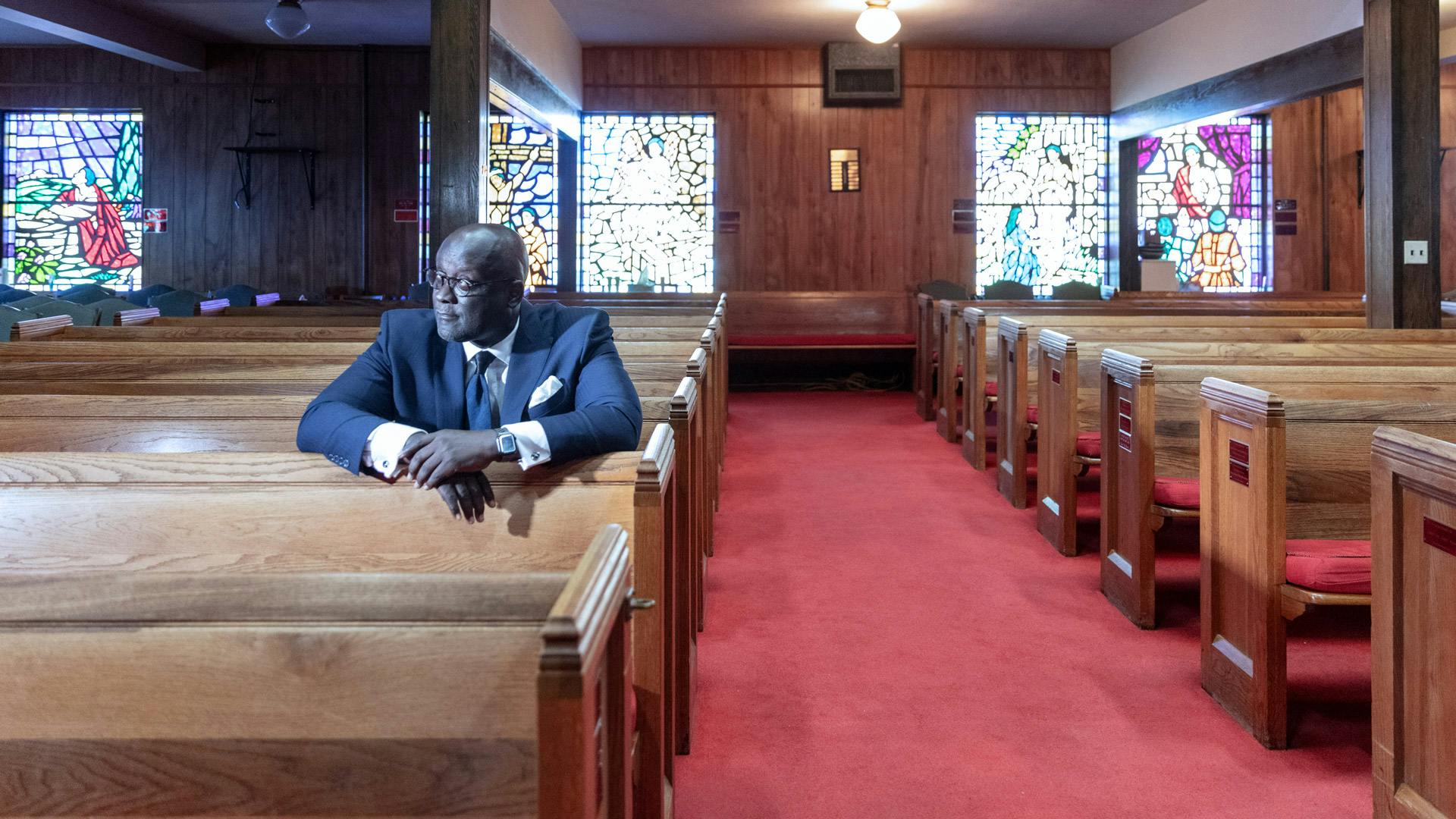Live. Magazine






“In a world that views aging as a challenge, we see it as an opportunity,” declares Michael W. Hodin, CEO of the Global Coalition on Aging, GCOA, a cross-industrial group, which includes leaders such as Novartis, Deloitte, Bank of America, and Philips, among many others, that focuses on the challenges of demographic change.
Hodin’s view encapsulates a profound shift in perspective toward societal aging. As populations started to age rapidly after the Second World War – on a global level, average life expectancy has risen some 20 years since 1950 to above 70 years today – demographic change was mostly perceived as an unsurmountable economic and societal problem.

Michael W. Hodin
CEO of the Global Coalition on Aging
OCA, on the contrary, wants to recognize the aging trend as a source of innovation, economic growth, and societal betterment and is working together with international institutions such as the United Nations, the Organisation for Economic Co-operation and Development or the G20 countries, which are increasingly embracing and pushing for such a mindset shift.
Japan, which is home to the oldest population on the planet with life expectancy at birth reaching above 80 years, is one of the most advanced countries when it comes to this ideological pivot. Once known for its youthful vigor, the country now sells more adult diapers than baby diapers, a reflection of its rapidly aging population and its proactive approach to harnessing the economic and social potential of this demographic shift.

Ingenuity as shown in Japan will become increasingly important. “Given the rapid aging in all societies as they modernize, we believe the basic public policies that were invented in the 20th century in key areas such as healthcare, pensions and education, must be reframed, reimagined and adapted to the age demographics of the 21st century,” Hodin said.
Changing the narrative
As part of its efforts, the GCOA is committed to transforming the narrative around aging, from one of challenge to one of opportunity, by leveraging cross-sector partnerships and innovative approaches.
One of its bigger initiatives is the Decade of Healthy Ageing, in which it partners with the UN and the World Health Organization. The goal is to foster global collaboration to improve the lives of older people, their families and communities. Among others, the project focuses on combatting ageism – changing how people think, feel and act toward age and aging – and delivering person-centered coordinated care and primary health services that meet older people’s needs.
Amidst this initiative, the GCOA also advocates for the development of age-friendly urban environments, where infrastructure and services are adapted to the needs of people as they age. This concept, among others, supports the creation of inclusive, accessible cities that enhance the quality of life for all ages, promoting active, engaged aging.
Engage with Heart
These efforts led GCOA and Novartis, which have been collaborating since GCOA’s founding, to develop Engage with Heart, a program that aims to tackle cardiovascular disease in underserved communities and foster more sustainable health systems through community approaches to healthy aging.
The project, which currently centers on the city of Baltimore, builds on work that Novartis and GCOA had done previously in the cardiovascular disease arena, including data collection and other efforts to understand heart failure diagnosis. In collaboration with the American College of Cardiology, the Association of Black Cardiologists and Caregiver Action Network, among others, it was revealed there is a major awareness gap in the general population as well as among specialists.
“We often heard anecdotes that older people would go to the doctor with symptoms such as dizziness or shortness of breath but were often sent home as doctors said that this was just a sign of getting older,” Melissa Gong Mitchell, Executive Director of GCOA, recalls. “Unfortunately, patients and doctors alike must realize that this is not just what happens when you age – cardiovascular disease is a disease, one that needs attention.”
Training is possible and important at any age.
Members of the Zeta center in Baltimore.
The deep-rooted belief that heart disease is a natural condition of getting old is especially concerning since some 50 percent of Americans are unaware that cardiovascular disease is the number one killer in the country. To change this perception from the bottom up, Engage with Heart brings together a diverse array of stakeholders, including churches, healthcare professionals and local leaders to create a model for holistic, community-based care that can be replicated across the globe.
Local partners include, among others, Baltimore-based Liberty Grace Church of God, Mount Pleasant Development Corp., the Lord’s Church, Sweet Hope Free Will Baptist Church, the Sandtown Winchester Senior Center, the Baltimore City Health Department as well as the Black Church Food Security Network, which all excel through their trusted network within the local community.
Community Health Ambassadors
While resting on the deep personal ties established by local faith communities, a crucial element in the implementation of the program is the deployment of so-called Community Health Ambassadors who bridge the gap between underserved communities and essential cardiovascular health services.



Community Health Ambassador Mark Montgomery
Pastor at the Liberty Grace Church of God
Marilyn Johnson, Lorrianne Mason and Jaleesa Washington
from Sweet Hope Free Will Baptist Church
Community Health Ambassador Creala Mickens
Zeta Center for Healthy and Active Aging
Through educational outreach, they raise awareness about heart health in partnership with volunteers from the Johns Hopkins School of Nursing and the expertise of national organizations like Mended Hearts, emphasizing the importance of preventative measures and early detection of heart conditions. As trusted local champions, the ambassadors provide the trust factor that is often missing from traditional health systems.
Moreover, by fostering close relations within the community, the ambassadors strengthen trust and encourage a more proactive approach to health. Their efforts not only enhance the community’s overall well-being but also provide valuable feedback to healthcare providers, ensuring that services are responsive and tailored to the community’s needs.
New investors
Currently, Novartis and GCOA are funding the work of the dozen or so Community Health Ambassadors to ensure that they are trained and empowered to encourage community members in churches and in their homes to make better choices and do something about their cardiovascular health.
Once the venture proves successful, private and public investors will be able to start funding the venture and introduce it to other cities across the United States. To get there, Novartis and its partners are collecting data from the outreach efforts, which should show that the health prevention work of the Community Health Ambassadors can make a marked difference for insurers and the overall healthcare sector.
“When we bring this data together, I’m hopeful it’s going to be an easy sell not only for public investment, but maybe also for more private investment,” said John Hohenwarter, who, together with Corporate Affairs Leader Leo Farber, has been engaged in the program from the Novartis side.
Huge need
Success would mean not only helping to save costs for the industry, but also closing the gap that exists between affluent and underserved patients.
This is especially stark in Baltimore, where life expectancy between different parts of the city can vary massively. Leo Farber, who went to high school in Baltimore, hopes the project will not only improve access to healthcare but also rebuild trust. “We’re talking about a 20-year gap in life expectancy between different neighborhoods,” Leo Farber said. “While the current project is relatively small in scope, it has the potential to make a real difference, not just in Baltimore, but in all of the United States and elsewhere.”

Melissa Gong Mitchell
Executive Director of GCOA
For the Black community, such projects could mean a real turnaround. Although heart disease affects all races and nations, killing around 700000 people in the United States every year, the heart disease death rate for the African American community is significantly higher than for the non-Hispanic white community.
In 2019, according to the Office of Minority Health and the Kaiser Family Foundation, African Americans were found to be 30 percent more likely to die from heart disease than their non-Hispanic white counterparts.
Recognizing the potential
These figures show that action is needed, and it seems that Engage with Heart could help improve the situation, at least in parts of Baltimore for now.
According to the leaders of Engage with Heart, the initial data is promising. As part of the project, which started in October 2023, hundreds of people have participated in education and information sessions. The volunteers from the Johns Hopkins School of Nursing have also reached out to hundreds of people to have their heart and cholesterol checked and refer them to doctors if needed.
Many of the Community Health Ambassadors, who are themselves 60 years and older, also prove that the program could provide jobs to older people who still feel active and want to give back to the community. For Michael Hodin, all of this proves that Engage with Heart is fulfilling GCOA’s vision to change the perception of old age.
Hodin sees signs of this changing trend all over the world. When he was driving in England last year to give a talk on bone health, he noticed a road sign near Oxford. The pictogram was probably from the 1950s and showed an elderly couple trying to cross the road, requiring the consideration and patience of drivers. In his presentation, Hodin then juxtaposed this sign with a current image of senior women skydiving in China to point out how much times have changed.
As GCOA and its partners look to the future, the focus is on data collection and engagement. Success will be measured not just in terms of reduced hospitalizations and improved health metrics, but also in the strength of community involvement and the durability of the changes implemented. The ultimate aim is a society where aging is not just accommodated but celebrated, where the wisdom and experience of older adults are recognized as valuable resources.
At its Silver Economy Forum, which GCOA organizes every year, numerous projects have already been presented that demonstrate this possibility: An architect is planning apartments for older people, not according to the usual designs from the 1960s, but according to the latest findings. Cosmetic lines are launched especially for older women, or trips are offered for senior citizens that no longer take people over 70 to play bingo, but instead stimulate them intellectually or take them to farms where they do valuable ecological and social volunteer work.
The message is clear: Old age has a future.





